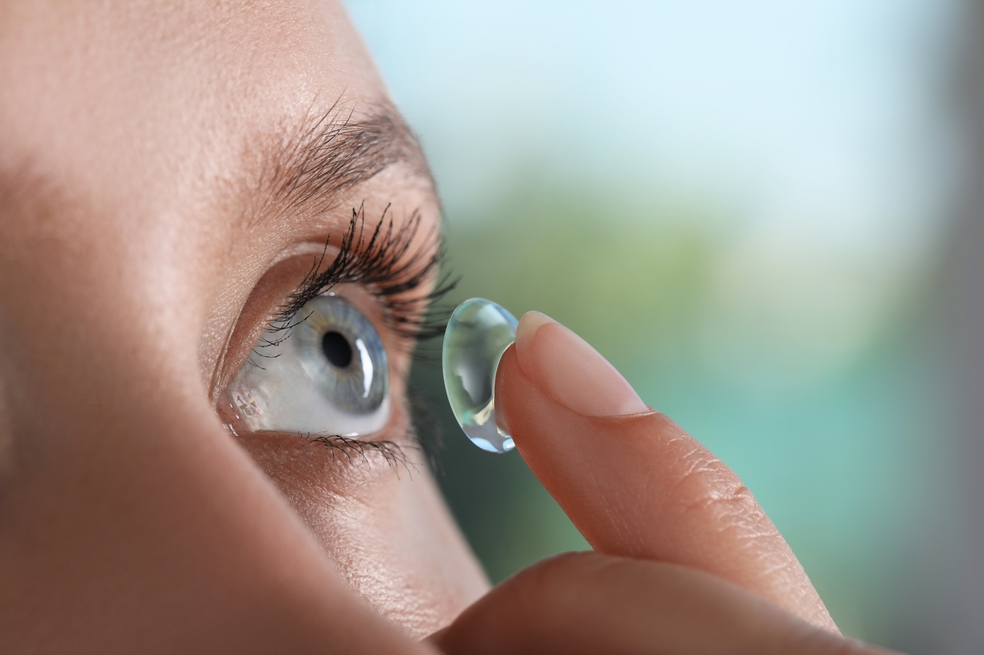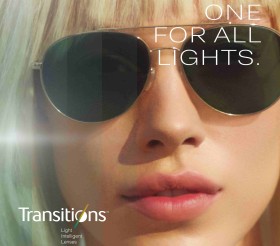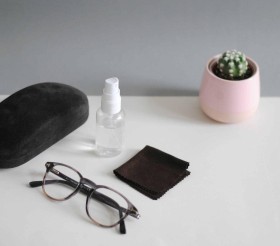Contact lenses are a practical aid that helps millions of people see better without having to wear glasses. Thinking of giving them a try? Here are some of their benefits that might convince you.
What are the benefits of contact lenses?
- Contact lenses don't distort the contours of your face the way eyeglass frames can sometimes do.
- You don't have to swap between sunglasses and dioptric glasses - you can comfortably wear sunglasses while wearing contact lenses.
- You can safely perform any sport.
- They are comfortable and don't shift on your nose like glasses.
- You will be able to focus better through the lenses and you will not be blinded by the glare from the glasses' lenses.
- With contact lenses, you don't have to compromise on makeup.
However, as with almost any product, there are many types, brands, materials, etc. of contact lenses. So how do you choose? We will advise you!
1. According to the type of eye defect (correction)
The most common and important categorization of contact lenses is based on the type of vision correction the lenses provide. Your ophthalmologist will tell you after the examination what kind of eye defect needs to be corrected in your case*. Specifically, this includes nearsightedness, farsightedness, astigmatism and presbyopia. Based on this, you can choose:
1) Spherical contact lenses are dioptric lenses designed to correct nearsightedness or farsightedness. They will allow you to comfortably and safely perform activities that are very difficult with glasses.
2) Toric contact lenses are designed to correct astigmatism as they have a cylinder.
3) Multifocal contact lenses are used to correct presbyopia. This means that they correct both distance and near vision.
*Even if you already have your prescription for dioptric glasses, it is important to note that this prescription is different from a contact lens prescription. For this reason, you need to make an appointment for a special eye measurement with your eye doctor or optometrist.
2. By hardness and material
There are two main types of materials:
- Soft lenses: comfortable and suitable for most people.
- Hard lenses: better correction, but may be less comfortable.
Soft contact lenses
-
Made of a flexible material that lets oxygen through to the cornea.
-
They provide a comfortable fit but require frequent replacement due to the risk of conjunctivitis.
-
They are divided into hydrogel, silicone hydrogel. Silicone-hydrogel contact lenses have a high oxygen permeability, which ensures good corneal breathing; on the other hand, compared to hydrogel lenses, they often have poorer wettability, higher stiffness and a tendency to form lipid deposits.
Hard contact lenses
-
Made of a rigid material (polymethylmethacrylate), they are not as flexible.
-
They adapt to the curvature of the cornea, they do not cover the entire surface of the cornea, but only the centre.
-
They also serve as therapeutic lenses for corneal diseases.
3. According to the purpose of use
Some lenses are designed for special occasions:
- Corrective: They are used to correct refractive errors such as myopia, hyperopia, astigmatism or presbyopia (hyperopia).
- Cosmetic: They are produced in both dioptric and non-dioptric versions and are used to change the colour of the eyes.
- Therapeutic: They treat certain eye diseases or injuries (especially corneal)
4. According to the length of wearing and regularity of replacement
- Daily: Require no care. You do not need any solution or case for them. You simply take new, perfectly clean lenses every day. This makes them the most comfortable and, most importantly, the healthiest way to wear contact lenses. You simply use and throw them away.
- Weekly / bi-weekly: For these lenses, you will need a solution with which you will take care of the contact lenses.
- Monthly: These are lenses for experienced users who don't want to wear glasses and rely completely on contact lenses. Even with monthly contact lenses, a solution is required.
- For long-term wear: They can be worn for longer periods of time, but require regular maintenance.
Other important parameters for contact lenses
- Water content of the lens: Higher water content means more comfort, but may increase the risk of infection.
- UV Filter: Helps protect the eye from the sun's rays.
- Curvature: Determines how well the lens fits your eye.
- Center Thickness: Influences comfort and oxygen permeability.
- Diameter: Important for proper fit on the eye.
Accessories and care
- Solutions and gels
Solutions rid contact lenses of dirt, destroy microorganisms and moisten their surface. So, by choosing the right solution, you will achieve the necessary cleanliness and preservation of your lenses. This is the only way to keep them in perfect condition for the entire duration of their durability. You can choose between multi-purpose (all-purpose) solutions, peroxide solutions and saline (saline) solutions (saline solution does not contain any disinfectant elements and therefore cannot replace special contact lens solutions.
- Eye drops
Increase the moisture content of the eyes and thus help contact lens wearers to increase comfort during the wearing process. They act as artificial tears, preventing dry eye syndrome and mechanical irritation of the eye. They also serve as protection for the eye against external influences (dust and pollen), help against bacterial build-up and in flushing and removing foreign bodies or toxic substances from the eye. On eyerim you can choose from eye drops containing sodium hyaluronate or preservative-free eye drops from well-known brands.
- Tweezers
Prevent debris and damage when putting in lenses.
- Lens cases

For whom are contact lenses suitable
Contact lenses can be a great option for people who don't want to wear glasses but have a need for vision correction. They are suitable for athletes as well as those looking for a cosmetic solution. However, they are not suitable for everyone. People with certain medical conditions or very dry eyes should be careful when choosing lenses.
For whom contact lenses are not suitable
- For people with certain medical conditions (e.g. glaucoma, diabetes, inflammation).
- For people with tear production problems, allergies or use of certain medications (e.g. contraceptives).
No more compromises between comfort and style. Choose from a wide range of contact lenses, solutions and drops from popular brands on eyerim!












